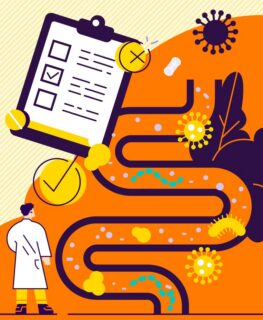What is Endo?
It’s a chronic inflammatory condition affecting 1 in 10 women where cells similar to those that line the uterus are found in other parts of the body, which can result in adhesions and scarring that causes significant pain, and in some cases infertility.
Symptoms
Commonly these include painful periods, pelvic and back pain, painful intercourse, pain when pooping, abdominal bloating, nausea, constipation, diarrhoea, and fatigue.
There’s a big overlap between endo and IBS symptoms; because of that it’s often not diagnosed for many years. If you suspect endo: see your doctor and perhaps ask for a referral to a gynaecologist.
Treatment
There’s, unfortunately, no known cure so far, and women often undergo surgical removal(s) of affected tissue as well as hormone therapy.
Diet
There’s limited scientific evidence for following a particular diet.
Some research has found that a diet rich in plants (and so anti-inflammatory properties) can help reduce endo-associated pain, and studies suggest that fatty acids found in oily fish, nuts, seeds, and olive oils can also be helpful.
Other research suggests that a low FODMAP diet may improve the bowel symptoms sufferers experience; a study showed that women with endo and IBS had a higher response to the low FODMAP diet than patients with IBS alone. A low FODMAP diet should be done under the guidance of a FODMAP-trained dietitian, involving a restriction phase, followed by an all-important reintroduction phase.
Gut-brain axis
Sufferers are often living with daily pain/discomfort which can affect quality of life, mood and relationships, which can have a knock-on effect on the gut via our gut-brain axis. Techniques such as breathing exercises, yoga or mindfulness can dampen that vagal nerve response… every little helps!
Take home
Aim for the 30 plants per week that we’re always mentioning (!), and if you’re having bothersome bowel symptoms, consider a session with a FODMAP-trained dietitian.














